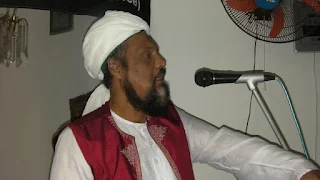Become the Helpers of Allah!
“O
you who believe! Become helpers of Allah: As said Jesus, son of
Mary, to the Disciples, ‘Who will be my helpers in the cause of
Allah?’ The disciples answered, ‘We are Allah’s helpers!’
then a portion of the Children of Israel believed, and a portion
disbelieved: But We gave power to those who believed, against their
enemies, and they became the ones that prevailed.”
(As-Saff, 61: 15)
In
the history of nations, on occasion they are obliged to take certain
basic decisions. This had equal application to worldly as well as
divine communities. When confronted with such situation, using a
well-known phrase, they have to decide: “to
be or not to be?” This is the
question. Today the question is whether you will advance or you will
perish.
In
the religious world, since the origin of faith is divine, this option
is not applicable. It is already decreed that the divine communities
will advance. There is never a question of retreat. For the
achievement of the goal set for them, they are always prepared to
sacrifice all. Such an occasion has now arisen in the history of the
Jamaat Ul Sahih Al Islam. The verse that I have just recited is most
appropriate for our times also.
Even
if Jesus (as), the Messiah and the Prophet of Allah is dead, but his
image has come yet again in this era through the will of Allah to
give you all a new lease of life. Had the Christians and Muslims
understood the real scope of this truth, they would have stopped
waiting for the physical descent of Jesus, son of Mary, Prophet of
Allah to the Israelites.
Now,
a new era has dawned. This era is that of Islam and perpetually so,
till the end of times. Even though the origin of all religions or
faiths is divine, but through the course of all these centuries,
people have lost their original essence, i.e. the unity of God. Thus,
with time, association with God became widespread in religions which
were basically monotheists and true. Their teachings were falsified
to quench the thirst for power of the modern divines [i.e. the high
priests, pundits, etc.]
But
now, with the rise of a Man of God who has come in the mantle of the
Holy Prophet Muhammad (pbuh) to revive the true teachings of all
previous faiths, the time is crucial, and help is needed to break all
false doctrines which have crept in the pure faith.
The
Holy Quran instructs those who believe to enlist themselves as:
Helpers in the cause of Allah, in the same manner as Jesus (as), the
son of Mary who asked his disciples: ‘Who
amongst you will help me for the sake of Allah?’
So Allah enabled a party of the Children of Israel to believe while
another party disbelieved.
Furthermore,
Allah says: “We
gave power to those who believed, against their enemies, and they
became the ones that prevailed.”















